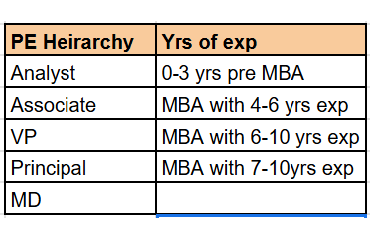
Bangalore has always been the tech heartbeat of India. Some call it the Silicon Valley of the East, others call it a city that never stops coding. Either way, when you walk through the tech parks in Whitefield or Electronic City, you can literally sense the pulse of innovation. Now here’s the question we’re all trying to answer—how do you actually land a Machine Learning or Data Engineering role in Bangalore in 2025?
The opportunities are massive, but so is the competition. And if you’ve been browsing job boards like Aplus Hub, you’ll already see senior software engineering roles from global names like Rippling, Flywire, and Artium popping up. These are not one-off listings; they’re signs of a city that’s hungry for ML and data talent.
Let’s break it down with reasoning, examples, and some straight talk.
Why is Bangalore Still the Hotspot for Machine Learning and Data Engineering Jobs?
Every year, people ask whether Bangalore is still worth moving to. After all, Hyderabad and Pune are also growing fast. But here’s the thing—Bangalore’s ecosystem has matured to the point where ML and data jobs aren’t just available, they’re embedded into almost every company’s growth plan.
Think about fintech. Firms like Flywire are hiring engineers in Bangalore to streamline global payments. Or HR-tech players like Rippling, which recently expanded roles in payroll and IT products. The volume of data they process daily is mind-boggling, which means they’re constantly looking for data engineers and ML experts to optimize pipelines, improve predictions, and build smarter automation.
So if you’re still wondering, the answer is simple—yes, Bangalore remains the epicenter. And with 2025 rolling in, demand is only intensifying.
What Skills Are Actually Getting You Hired?
You might be thinking, “Do I need to know every framework under the sun to stand out?” Honestly, no. But you do need depth in the right areas. Companies want problem solvers who can write production-ready code and design robust data pipelines.
For Machine Learning roles, here’s what consistently shows up in job descriptions:
-
Python mastery (pandas, scikit-learn, PyTorch, TensorFlow)
-
Solid grasp of statistics and probability
-
Deployment know-how (MLflow, Docker, Kubernetes)
-
Understanding of business problems—not just models in isolation
For Data Engineering roles, employers are scanning for:
-
SQL and NoSQL fluency
-
Big data frameworks (Apache Spark, Hadoop, Kafka)
-
Cloud expertise (AWS, GCP, Azure)
-
Data modeling and warehouse design (Snowflake, Redshift, BigQuery)
And let’s be honest, one underrated skill is the ability to explain your work to non-technical teams. If you can tell a product manager why your model matters in plain English, you’re already ahead of half the pack.
Where Should You Learn and Practice These Skills?
You don’t need to go chasing an expensive master’s abroad to crack this field. Plenty of accessible options exist right here.
-
MOOCs and Online Platforms: Coursera, Udemy, Fast.ai, and Kaggle are not just buzzwords. They’re proven, structured ways to build ML muscles.
-
Hackathons and Competitions: Participate in hackathons hosted by HackerEarth or Kaggle. They simulate real problems with deadlines—and employers love seeing these on resumes.
-
Local Meetups in Bangalore: Check out PyData Bangalore or Machine Learning India meetups. These aren’t just talks; they’re networking opportunities where hiring managers sometimes scout talent.
One idea from Aplus Hub—keep track of their job postings weekly. If you notice, for example, three postings in a row asking for Spark, it’s a signal. That’s the skill to double down on, because demand speaks louder than trend reports.
How Do You Tailor Your Resume for These Roles?
Here’s where many talented folks trip. They’ve done projects, but the resume reads like a grocery list of technologies. You need to flip that narrative. Instead of writing “Used PyTorch for deep learning models”, write “Deployed PyTorch model that reduced customer churn by 12% in a pilot test.”
Employers aren’t buying tools; they’re buying outcomes.
And don’t forget, hiring in Bangalore is fast-paced. Recruiters may spend 15 seconds on your resume. So front-load impact—your most impressive project, your strongest technical contribution, your certifications that matter (AWS Data Engineer, TensorFlow Developer, etc.).
When Should You Start Applying in 2025?
Here’s an underrated tip—timing matters. January to March is peak hiring season for tech firms in Bangalore. Budgets reset, teams expand, and recruiters are aggressively filling roles. By mid-year, things slow down slightly.
So if you’re reading this in December, this is your prep window. Polish your resume, line up projects on GitHub, brush up interview prep, and get your profile active on Aplus Hub and LinkedIn. Come January, you’ll be ready to strike while the iron’s hot.
What Interview Patterns Should You Expect?
Interviews for ML and data roles in Bangalore aren’t just coding tests anymore. They’re layered.
-
Initial screening: Basic coding test (often Python or SQL)
-
Technical deep-dive: Whiteboard or online test on algorithms, data structures, and system design
-
ML/DE specific round: Real-world case studies. For instance, “Design a pipeline that processes 10M payment records daily without downtime.”
-
Behavioral + business round: Can you align with the team’s goals, explain trade-offs, and handle ambiguity?
And yes, cultural fit is big. Companies like Artium and Flywire want engineers who not only solve but also collaborate across continents.
Who’s Actually Hiring in Bangalore Right Now?
Let’s name names because vague advice won’t help. Current postings on Aplus Hub show:
-
Rippling: Senior Software Engineer roles (Global Payroll, IT Product) in Bangalore
-
Artium: QA Automation Engineer in Karnataka, but QA today overlaps with data pipelines and ML testing
-
Flywire: Senior Software Engineer (iPayex) in Bangalore with heavy data processing needs
These are live examples showing where the market is tilting. Global-first companies are expanding Bangalore teams, meaning you don’t just build for India—you build for the world.
How Do You Build a Career Beyond Just Getting Hired?
Landing the job is step one. But Bangalore’s tech scene rewards those who keep growing. How do you do that?
-
Stay plugged into open-source projects. Contributions on GitHub aren’t just portfolio items, they’re credibility signals.
-
Take initiative at work. If you’re a data engineer, don’t just maintain pipelines—propose how ML could make them smarter.
-
Keep your learning loop alive. ML and data tools evolve faster than your phone updates. If you pause learning for even a year, you risk slipping behind.
And don’t underestimate soft power—mentorship, community building, even sharing insights on LinkedIn can build your personal brand.
Final Thoughts
Let me be real for a moment—getting into ML and Data Engineering roles in Bangalore isn’t a walk in Cubbon Park. It takes effort, consistency, and strategy. But if you’re ready to put in the work, the rewards are substantial.
Remember, the jobs listed on Aplus Hub aren’t the ceiling. They’re snapshots of a booming ecosystem that’s hungry for data-driven thinkers. And if you position yourself right—with the right skills, timing, and story—you’ll find yourself not just working in Bangalore’s tech industry, but shaping it.
So here’s the challenge: Will you be the one applying casually in 2025, or will you be the one who prepared months in advance, armed with skills that match the city’s pace?
The choice, as always, is yours.
Don’t stress about searching every career page or job site. Stay ahead with the latest opportunities from different sources right here!
Related Articles
You've gone through an education system that probably never taught you anything about professionalism, logical deconstruction, and comfort with ambiguity. You may have tremendous bookish knowledge, but lacking these three attributes is an immediate invisible red flag that will stop you from getting the job or the promotion you always wanted.
Let's throw some light on the top-5 common mistakes that highlight your lack of these attributes, and what you should be doing instead
- Showing up late without informing your interviewer/coordinator - there are genuine reasons one could be running late, but that needs to be duly communicated ahead of the planned interaction. Inform every marked on an invite, drop a text or give a call, but keep your stakeholders informed. Their time is as much valuable as yours.
- Turning up unprepared for the interview - if you are turning up unprepared, why is it that you are turning up at all? why waste your and interviewer's time? You are better off declining the opportunity, instead of ruining your reputation unnecessarily. You must invest 1 hour to read about the company, the opportunity, some information in the public domain and so on, if you have chosen to show up for an interview.
- Going silent instead of communicating effectively with your stakeholders - it might come as an insight but everyone knows you would evaluate multiple opportunities before chosing one, everyone knows that your decision might be influenced by your loved ones, and everyone is okay with your being unsure, but nobody likes to be left wondering about what might be happening. So, good, bad or ugly, communicate, communicate and communicate! You'll build more relationships that you ever thought, and you never know, one or more of these relationships may turn gold in the times to come.
- Rambling stuff that does not make sense - let us fill you in on another secret, nobody - not even the most successful individuals can know everything about everything in the world. So, when presented with topics/questions you have no clue about, you got to either draw parallels from what you have expertise on, rationally break down the information you are presented with to come up with simple yet logical answers, or admit you do not know anything about this but can talk about something relevant to the opportunity being discussed in detail.
- Demanding a bomb without a concrete rationale - the whole world is underpaid, friends! who doesn't want more, but that's not how it works. Your next compensation cannot ignore your current and/or previous compensations. If you chose to take a sabbatical, took an opportunity by taking a haircut, or become an entrepreneur that eventually did not work out, you have to make peace with your decision. Nobody else had a say in that! You can definitely demonstrate additional skills/knowledge that you acquired during this period (that surely has a value), but that value isn't the only figure on which your next compensation will be decided on. So, learn about the market standards and try to limit your ask within the broadly acceptable range.
Let’s be honest — job hunting today feels like swiping right on a dating app where no one ever replies. Employers can’t find the right talent, job seekers chase ghost listings, and somewhere between “We’ll get back to you” and “Position closed,” everyone loses their sanity.
Enter Aplushub — the career saver we didn’t know we needed.
Why Aplushub Exists
Born from the chaos of the modern job market, Aplushub was built on one bold idea — quality over quantity. It’s not just another job portal flooding you with random roles. It’s a curated ecosystem that blends AI precision with human insight to filter out the clutter and keep only what truly matters: authentic, relevant, and verified opportunities.
What It’s Solving
Aplushub is tackling the biggest pain in job search — noise. Fake jobs, expired links, spam recruiters, and endless scrolling are replaced by clean, credible listings. The platform categorizes openings into Free Jobs (posted directly by employers) and Premium Jobs (handpicked by Aplushub’s research team from trusted sources and networks). So, no more digital wild goose chases — only jobs worth your time.
Remote Jobs? Absolutely.
Whether you’re working from your couch in Chennai or a café in Manali, Aplushub’s got you covered. The platform features a dedicated Remote Jobs section — tailored for professionals who value flexibility. It connects you with employers who believe talent shouldn’t be tied to geography.
Why It’s a Win-Win
For job seekers, Aplushub is your career compass — one dashboard, hundreds of genuine opportunities, and no shady “DM for job” drama.
For employers, it’s a hidden gem. Posting is free, candidate access is simple, and you get applicants who are genuinely interested — not bots in disguise.
Bonus Perk: The *OpenBook* Advantage
Here’s where Aplushub really flips the script — OpenBook, its transparency-first feature. It gives job seekers a peek into real hiring insights, company trends, and recruiter updates, turning job search into a smarter, more informed experience. No more guessing what employers want; OpenBook hands you the inside scoop to make data-backed career moves.
The Price Tag (Spoiler: It’s Almost Free)
Aplushub keeps things real and affordable. You can explore its free tier, test-drive premium access with ₹50/Month, or go all in with ₹499 for a full year— basically less than your monthly coffee budget to land your next big opportunity.
So whether you’re hiring, hunting, or just tired of the chaos — Aplushub is here to bring sanity (and a smile) back to your career journey.
👉 Visit AplusHub.com — where jobs finally make sense.
Private Equity (PE) is one of the most coveted industries in finance. One of the highest paying industries, Private Equity (PE) attracts absolute creme-de-la-creme of MBA graduates, management consultants, and investment bankers. Also highly competitive, PE funds hire only a handful of investment professionals across levels in a year.
A+ research team has spoken to multiple PE professionals across domestic and global PE funds in India. In the table below, we have compiled average base compensation, variable (bonus) and carry components at blue chip global PE funds in India.
| Role | Yrs of exp | Large Global PE Funds (base salary) | Bonus (as a % of base) | Carry | |
| Analyst | 0-3 yrs pre MBA | $60K-$80K | 60-100% |
Notional Carry or LTI or Certain bonus is paid in the form of carry distribution in case of multi-billion dollar funds*
|
|
| Associate | MBA with 4-6 yrs exp | $100K-$150K | 80-100% | ||
| VP | MBA with 6-10 yrs exp | $200K- $250K | 90-120% |
Estimated 0.5%-2% of the carry pool for a multi billion dollar fund*
|
|
| Principal | MBA with 7-10yrs exp | $300K-$400K | 90-120% | ||
| MD | $500K+ | 100-150% | |||
| Notes: |
These figures are estimates of salaries at top global PE funds like Bain, Carlyle, TPG, Warburg Pincus, General Atlantic and the likes
|
||||
|
Buyout focused funds have 30-50% higher base salaires and respective bonuses
|
|||||
|
*These are estimates from the information gathered through our network; might change/vary with more data
|
|||||




